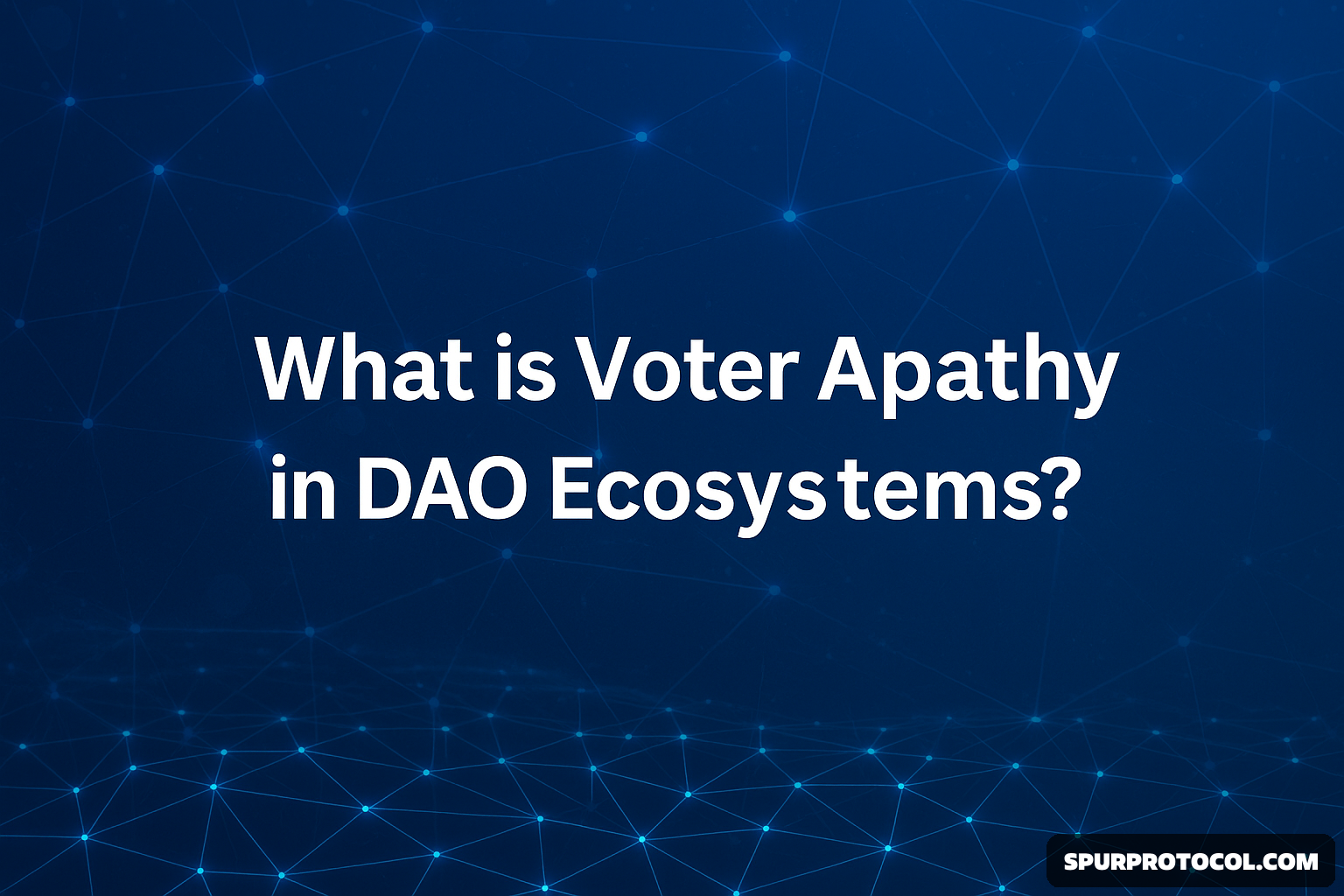Causes of Voter Apathy in DAOs:
1. Complexity of Proposals
Many proposals are highly technical or long-winded, discouraging everyday users from engaging.
2. Lack of Incentives
Without tangible rewards, users may feel there's little reason to spend time understanding and voting on proposals.
3. Perceived Lack of Impact
Smaller token holders may feel their vote doesn’t matter, especially in systems where voting power is proportional to token holdings.
4. Voting Fatigue
Too many proposals or frequent voting can overwhelm participants, leading to disengagement.
5. Low Awareness or Poor Communication
Users might not know when votes are happening or understand their importance due to inadequate community updates.
6. Gas Fees (on some blockchains)
On networks like Ethereum, voting can require gas fees, which discourages small holders from participating.
🧠 Why It Matters:
Poor Governance Quality:
Low participation can lead to a small group of whales or insiders controlling decisions.
Centralization Risks:
A few active participants can dominate, undermining the decentralization ethos of DAOs.
Community Disengagement:
Apathy can erode the sense of shared ownership, weakening the DAO over time.
🛠️ Solutions to Combat Voter Apathy:
Quadratic Voting: Reduces the power of whales and amplifies smaller voices.
Delegated Voting: Token holders delegate votes to trusted representatives.
Voting Incentives: Reward voters with tokens, NFTs, or reputation points.
Simplified UX: Make the voting process easy and gasless via tools like Snapshot.
Education & Communication: Improve transparency and awareness around proposals.
